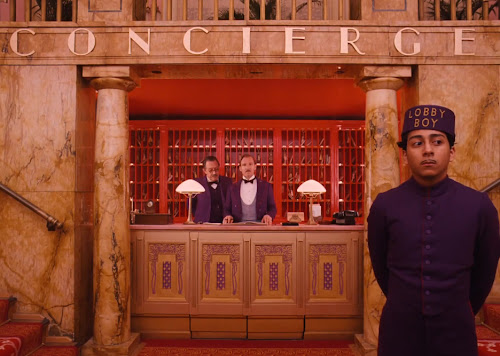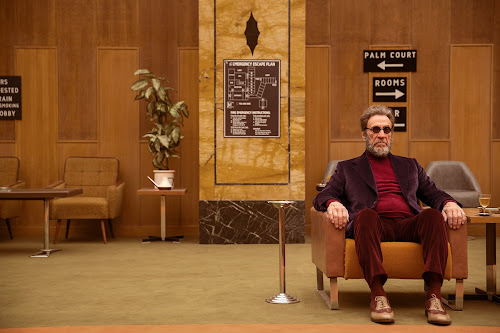
... , however, there is still - like in many other business sectors - the problem of horizontal and vertical gender segregation of the labour market:
Horizontally, women and men are placed in different occupations - women are being employed as waitresses, cleaners, travel agencies sales persons, flight attendants, etc., whereas men are being employed as gardeners, construction workers, drivers, pilots, etc. Vertically, the typical "gender pyramid" is prevalent in the tourism sector - lower levels and occupations with few career development opportunities are being dominated by women and key managerial positions dominated by men. (Ramchurje, 2011)Apart from the labour market, women play a role as travellers and face specific problems (mainly concerns for personal safety) when, for instance, travelling alone (Jordan & Aitchison, 2008). Inclusive tourism is not only about gender and socioeconomics. Sexual orientation, disability, and age are further dimensions that need to be considered.
One in three LGBT travellers (32%) feels they are treated differently due to their sexuality when on holiday. This was a key finding of research conducted in September 2016 by British-owned tour operator Virgin Holidays. The study – a survey of 1,000 adults who identified at LGBT conducted by OnePoll – also highlighted the fact that sexuality had a major influence on where LGBT British adults travelled, with two thirds (63%) refusing to visit somewhere with an unwelcoming attitude towards the LGBT community. It is clearly important for people to be able to feel comfortable when they travel, yet apparently almost a quarter (23%) of LGBT travellers change the way they act and try to camouflage their sexuality when on holiday.Solo travelling "no longer lies with the 20-something backpacker that stereotypes suggest". In a survey, the highest percentage of people who would travel alone was found among 55-64-year-olds (35%) and over 65s (31%) which again means that the tourism industry needs to react to these travel habits (via) and to "demographic challenges" (as an ageing society is constantly called a "challenge") in general (Nikitina & Vorontsova, 2015). So far, only "very little attention" has been given to senior tourists in literature (Patterson & Balderas, 2018).
UNWTO
For people with disabilities, tourism can still be a challenge (via). In many Western industrialised countries, discussions on Accessible Tourism for All started in the late 1970s and intensified in the past twenty years. Nevertheless, this approach is far from being widespread and still a niche segment (Kagermeier, n.d.) with a lack of products and services (Özogul & Baran, 2016).
‘Inclusive Tourism’ is often referred to as ‘Accessible Tourism’ or even ‘Disabled Tourism’. Disabled people were used to be and still are partially excluded from the leisure activities offered to people without mobility problems. Therefore accessible tourism is about making it easy for all people, irrespective of their gender, age or physical status, to enjoy tourism experiences. It is a set of services and facilities for individuals with special needs, who are for example disabled, elderly travellers, pregnant women, parents pushing their children in strollers or even people with temporary injuries, such as a broken leg or chronic ailments. All these people need to be particularly enabled during their travel. Thus, accessible tourism is the ongoing attempt to ensure that tourist destinations, products and services around the world are accessible to all people, regardless of their physical limitations, disabilities or age. (...) Not only the mobility-impaired people benefit from the improvements, but also their relatives, friends and other companions. Accessibility in tourism is a social right which concerns all citizens. It is often limited to a certain group of people but it should be seen in a more holistic approach (...).- - - - - - - - -
Münch & Ulrich (2011)
- Jordan, F. & Aitchison, C. (2008). Tourism and the sexualisation of the gaze: Solo female tourists' experiences of gendered power, surveillance and embodiment. Leisure Studies, 27(3), 329-349.
- Kagermeier, A. (n.d.). Challenges to attaining "Acessible Tourism for All" in German destinations as part of a CSR-oriented approach. BEST EN Think Tank XVI. Building Escellence in Sustainable Tourim Education Network.
- Özogul, G. & Baran, G. G. (2016). Accessible tourism: the golden key in the future for the specialized travel agencies. Journal of Tourism Futures, LINK
- Patterson, I. & Balderas, A. (2018). Continuing and Emerging Trends of Senior Tourism: A Review of the Literature. Journal of Population Ageing, LINK
- Ramchurje, N. A. (2011). "Tourism" a Vehicle for Women's Empowerment: Prospect and Challenges, LINK
- Nikitina, O. & Vorontsova, G. (2015). Aging Population and Tourism: Socially Determined Model of Consumer Behavior in the "Senior Tourism" Segment. Procedia - Social and Behavior Sciences, 214, 845-851.
- photograph by Vivian Maier via



































